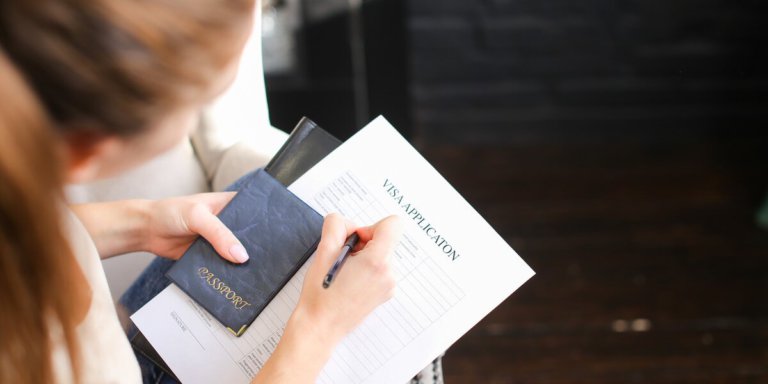
Visa fraud is no joke. You can get in serious trouble if you’re found entering the country through illegitimate means.
Unfortunately, international students often fall prey to fraudulent visa agents – often called recruiters – even though there are many legitimate agents out there.
A recent investigation by The Globe and Mail found that “recruiters exploit foreign nationals for their money, their labour or both.
“The cases The Globe looked at affected more than 2,000 people who were told – often falsely – that if they gave recruiters huge fees to arrange jobs or college placements, they would be set for life in Canada.”
The problem is more prevalent in countries like Canada and the UK where students are allowed to work off-campus.
Often, agents lure students with the promise of getting a student visa so they can work, but they generally tend to work more hours than legally allowed.
Devinder Thind, originally from India, told The Globe and Mail, ” The [recruiters] make us fake promises like it is good in Canada, you can get your work permit, and it’s all not true. The whole experience was really bad. Lots of people misguided me. They just use us, right?”
So how do you identify a fake visa agent and avoid falling victim to them?
Here are some red flags to look out for.
They claim you won’t have to attend classes
Did you know that 99% of Canadian job offers are a fake/scam?. Don’t be fooled by these job offers. Consult us today to know if your job offer is valid.#immigration #visa #canada #studyabroad #lawyer #immigrants #notmypresident #migration #studentvisa #ielts #bhfyp#law pic.twitter.com/BbAR2enri3
— ImmiLaw Global (@immilawglobal) May 14, 2019
If an agent assures you that you can simply work without attending classes while on a student visa and there is a job offer waiting for you, this is a major red flag.
Some claim that a student visa is simply to get you into the country, where you can get a job easily and be sponsored by your employer for a work permit.
In most countries, you must be enrolled in a full-time course as an international student in order for your student visa to be valid. Plus, employers rarely offer jobs or sponsor those without a qualification or a legitimate student visa.
Don’t fall for this, and remember that your goal is to receive a qualification, and there really are no shortcuts to gaining a work permit.
Their promises differ from official websites
Always check official embassy and university websites. If the website claims that you cannot work off-campus or that you can only work a certain number of hours but your agent is telling you otherwise, they are probably lying.
Also, check the application fees for both your visa and university so the agent can’t fool you into paying more than you should.
Another red flag is when an agent guarantees you admission to a particular university before you even apply. There is no institution that will do so before you’ve even applied or sent in any of your documents.
Be sure your letter of acceptance is valid by checking with the university, if you’re receiving it from an agent.
The university is not accredited, or doesn’t exist
ICE set up a school.
Intentionally recruited immigrant victims into a scam.
Charged students money.
Pretended to be a legitimate institution that would allow students to remain in the country under a visa.
Then set them up for deportation.https://t.co/zgKTbPg29g
— United We Dream (@UNITEDWEDREAM) January 31, 2019
Recently, the US Department of Homeland Security set up fake universities on purpose as part of an undercover operation to expose visa scams.
This is because of the growing number of visa scams, known as visa mills, where a fake company poses as a college to attract international students.
It’s your responsibility to ensure you’re applying to a legitimate and accredited institution. According to World Education Services, “You might even think that a school seems suspicious, but decide to apply anyway as long as it still counts toward a student visa. This is not a good idea, since using that real visa to attend a fake school is actually a crime in the United States.”
How do you check whether a university is legit? World Education Services advises students to watch out for red flags, such as “not being able to find comprehensive information about classes online, not easily locating information about student organizations or alumni, and not being able to make direct contact with various relevant personnel.”
They can’t answer academic-based questions
If they struggle to answer questions about the SAT, your GPA requirement, your course requirements, and such, they are most likely trying to scam you.
Fake visa agents have been reported to lure students in by talking about culture adjustments and work opportunities instead of academics, so this is a major red flag.
When dealing with agents, you should always be on alert. Remember, if your gut instinct is telling you that something’s wrong, it probably is.
Liked this? Then you’ll love..
What to do if you’ve been scammed as an international student
School enrolment fraud is a problem – but what’s being done about it?







